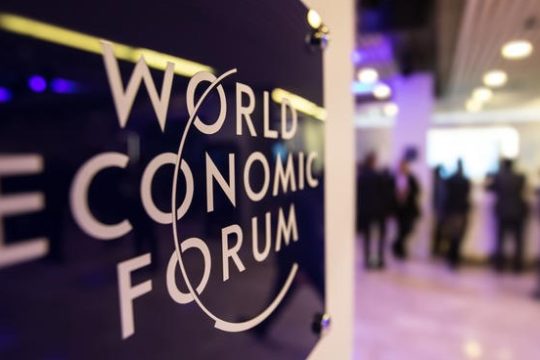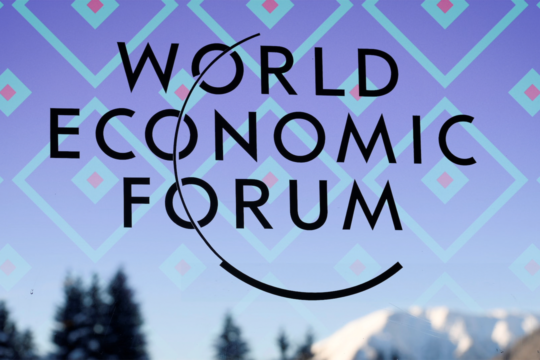
A focus on stakeholders takes top billing, with a shift toward real action on climate and metrics

A focus on stakeholders takes top billing, with a shift toward real action on climate and metrics
The 50th meeting of the World Economic Forum in Davos was a culmination of the recent momentum building within the global business community for greater accountability and action from corporate leaders on their impact on society and the climate. From start to finish, the schedule of panels, meetings, and conversations reinforced a clear message: long-term thinking is the new standard. The tenets of long-term decision-making were front of mind for nearly everyone we encountered in Davos. Here’s what we took away:
Many say that 2019 was the year of the stakeholder, defining customers, employees, suppliers, and investors as equal parts of the community that a company creates by way of doing business. But this is nothing new for those behind Davos – a holistic focus on corporate stakeholders has long been a part of the WEF’s raison d’être. I was fortunate enough to moderate a panel with Carmine Di Sibio (EY, FCLTGlobal board member) and Paul Tudor Jones II (JUST Capital), Stakeholder Capitalism: Creating Common Standards for Corporate Governance (full video).
The debate on the rise of stakeholders at Davos took two forms. The first is the idea of working with all stakeholders in order to have an optimal long-term outcome for all, including shareholders. The second suggests that one has to “divide the pie” between shareholders and other stakeholders. In fact, there are many trade-offs among a company’s various stakeholders that CEOS make every day, and while time resolves many of them, companies are increasingly being asked to clarify how they make these critical decisions. An organizational shift toward the long term can benefit all of a company’s core constituencies – we are looking for 2020 to be the year when more companies clarify their intent and turn that intent into action.
…and it’s been over for quite some time. Corporate leaders have fully recognized that the externalities of climate have not been factored into their business models. Forward-thinking businesses are now incorporating the impact of climate change, their responsibility for making changes, and the associated costs into their decision-making. Rising star Greta Thunberg has become the face of the issue, but notables throughout the corporate world are putting their weight behind new initiatives. Putting it simply was Mark Carney, outgoing governor of the Bank of England: “Now these questions are being asked, and are you on the right side or the wrong side of that transition (away from fossil fuels)? And if you are on the wrong side, what are you going to do about it?”
Many innovations to address climate change – in areas such as renewable energy, transportation, infrastructure, food, and other natural resources – are ready for implementation. Investing in them, both by companies and directly by investors, requires a long-term focus and a significant amount of capital. However, the short-term nature of our capital markets and the uncertainty that surrounds the analysis of climate-related risks limit the scale of such investments. Members convened at FCLTGlobal’s annual CEO Roundtable to discuss what companies and investors can do to direct significant capital towards climate solution opportunities. Highlights included scaling already-proven climate solutions, transitioning to zero-carbon over reasonable time frames, investing in innovation, and developing new financing structures to lengthen time frames and mitigate risk around climate-related investments, particularly given this low-interest-rate environment.
Business has felt a deep sense of frustration on how to account for ESG issues and progress towards the UN’s Sustainable Development Goals. Companies are working hard to better meet the demands of an ever more conscious public and investor base. What they have lacked is a uniform way to share these plans (and progress) with the world.
The WEF’s International Business Council (IBC) put a strong step forward, unveiling a new set of metrics and disclosures for companies to expand reporting beyond traditional financial metrics. We have been sharing our latest work on long-term metrics with the WEF’s team over the course of this project. Rather than recreate the wheel, the IBC has brought together key stakeholders (including the Big Four accounting firms) to distill existing frameworks into one set of metrics that can work for companies of all sizes, industries, and locations.
The IBC’s shortlist of metrics is a much-needed starting point that can improve and evolve over time. For example, most equity investing today is based on quantitatively-driven processes, and qualitative factors remain difficult to incorporate. We look forward to working with the WEF and others to refine and test such metrics that can bring these considerations into the fold.
The talk around long-term, sustainable behavior for companies and investors alike were everywhere in Davos last week. At FCLTSummit 2020, our biennial event taking place on 5 March in New York, we will turn that talk into action. FCLTGlobal’s focus continues to be on practical steps companies and investors can take to rewire capital markets for long-term growth.

Article
4 February 2019 - The debate no longer concerns why organizations should be longer-term, but rather how they can accomplish it.

Article
13 February 2018 - Another January has come and gone, and another week of discussions at Davos has drawn to a close.